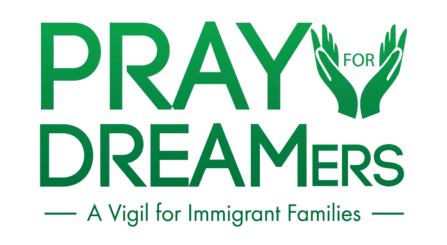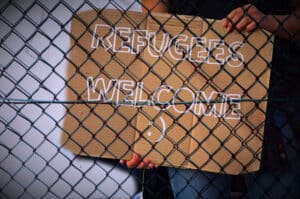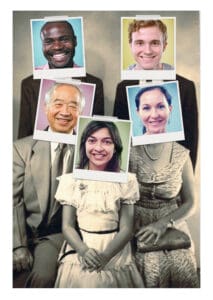Editor’s Note: CSA is launching a nationwide call to prayer for DREAMers and for clean legislation to replace DACA. Click here for more information. Also, watch a Facebook Live recording of CSA’s New Copernican salon “Giving DACA a Human Face” with Vanessa Upegui, and read on for a personal glimpse into why one individual has committed to #PrayforDREAMers.
 On September 5, the American Immigration Policy known as DACA—Deferred Action for Childhood Arrivals—was rescinded by President Donald Trump. Originally created to remove immigration enforcement from an estimated 1.7 million “low priority” individuals, DACA protected around 800,000 people who were brought to the United States as children (referred to as “dreamers”) from the threat of deportation. As someone raised by two American Baptist pastors and who considers himself a radical Christian, my first approach in considering the predicament of the individuals affected by DACA’s rescission is to look through a biblical lens.
On September 5, the American Immigration Policy known as DACA—Deferred Action for Childhood Arrivals—was rescinded by President Donald Trump. Originally created to remove immigration enforcement from an estimated 1.7 million “low priority” individuals, DACA protected around 800,000 people who were brought to the United States as children (referred to as “dreamers”) from the threat of deportation. As someone raised by two American Baptist pastors and who considers himself a radical Christian, my first approach in considering the predicament of the individuals affected by DACA’s rescission is to look through a biblical lens.
When I pray for DACA, I’m praying specifically for Vanessa; I’m also praying for 800,000 other people who feel unloved, unwanted, and uncared for.
From Moses, we hear God’s response to a people living in oppression similar to the aliens in our midst today—“Do not mistreat or oppress a foreigner, for you were foreigners in Egypt” (Exodus 22:21). In the New Testament, Jesus’s “Parable of the Sheep and the Goats” reminds us of the importance of caring for those who are strangers: “I was hungry and you gave me something to eat, I was thirsty and you gave me something to drink, I was a stranger and you invited me in” (Matthew 25:35). And beyond these passages lies an entire canon calling us to care for God’s creation—ALL of that creation. That God is for the alien becomes exceedingly clear.
But it wasn’t until meeting Vanessa Upegui-Seel and hearing her story that I began to comprehend not just what I was praying for, but who I was praying for. As an undocumented immigrant who was brought by, and traveled with, her mother to the US at the age of twelve to escape civil war in her native Columbia, Vanessa has invested thousands of hours (and tens of thousands of dollars) in trying to gain citizenship of the country where she went to school, launched a career as an entrepreneur, and currently runs a successful business. Despite 21 years of residency, of paying taxes, of contributing value to society in any number of ways, and despite her marriage to an American citizen, Vanessa still lives in constant fear of being deported to a country she hardly knows. She lives in fear of losing her business, her home, her friends, and her family—in short, everything that is dear to her.
Vanessa’s experience is not unique; hundreds of thousands of DREAMers live in the same perpetual state of fear. But it’s in hearing stories like Vanessa’s that DACA stops being simply a policy and starts being about actual human beings with individual faces, histories, hopes. When I pray for DACA, I’m praying specifically for Vanessa; I’m also praying for 800,000 other people who feel unwanted, vulnerable, and without an established place in what is often the only “home” they can remember having. And as a Christian, I’m praying for those like my Savior—for refugees, for wanderers, for the homeless. Finally, I’m praying for me and others like me. I’m praying that we all can carry the compassion and the love that Jesus called us to when he declared, “A new command I give you: Love one another. As I have loved you, so you must love one another” (John 13:34).
That is why I pray—I pray to love.
James K. P. Williams is a Sider Scholar for Christians for Social Action.


